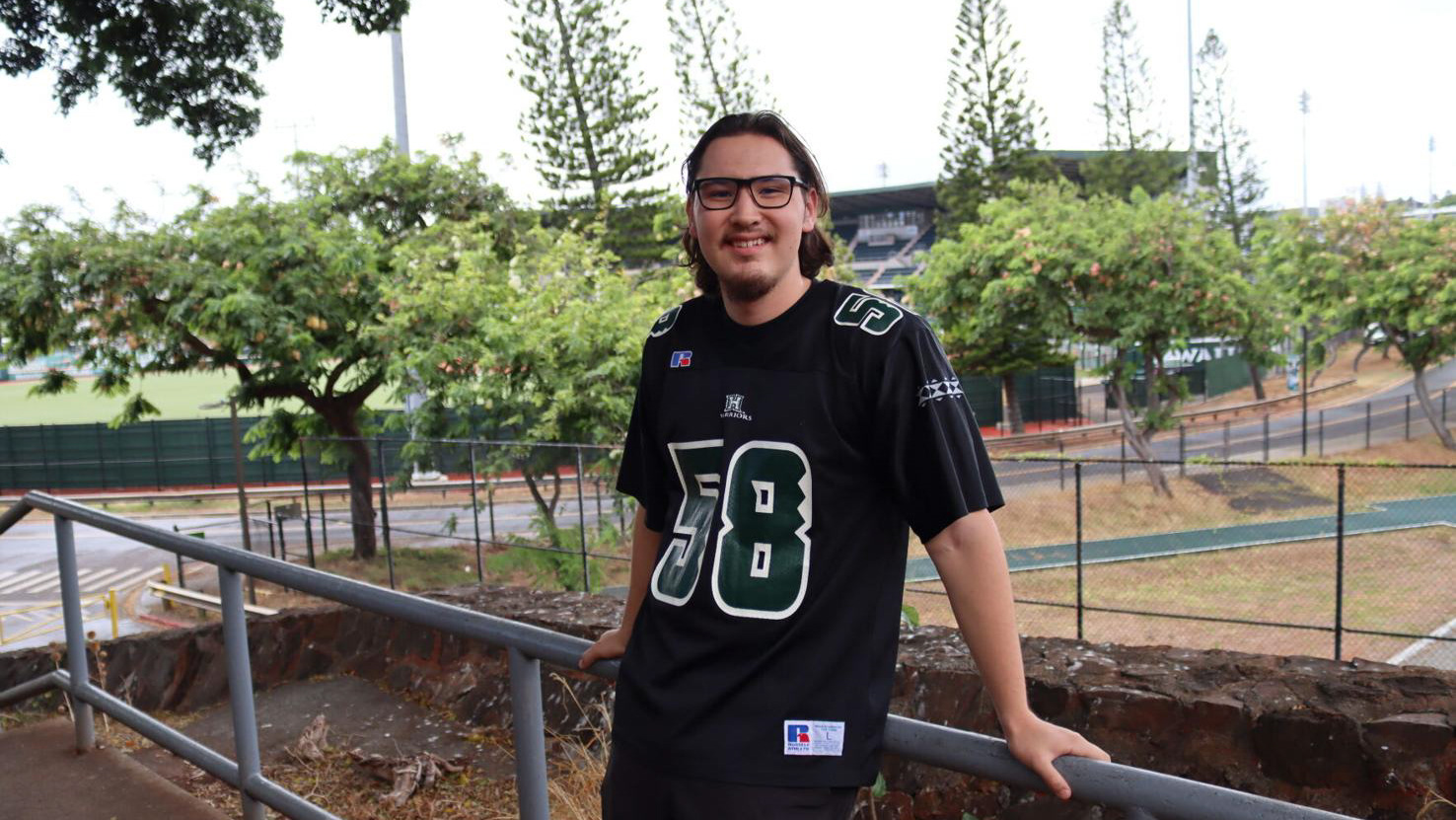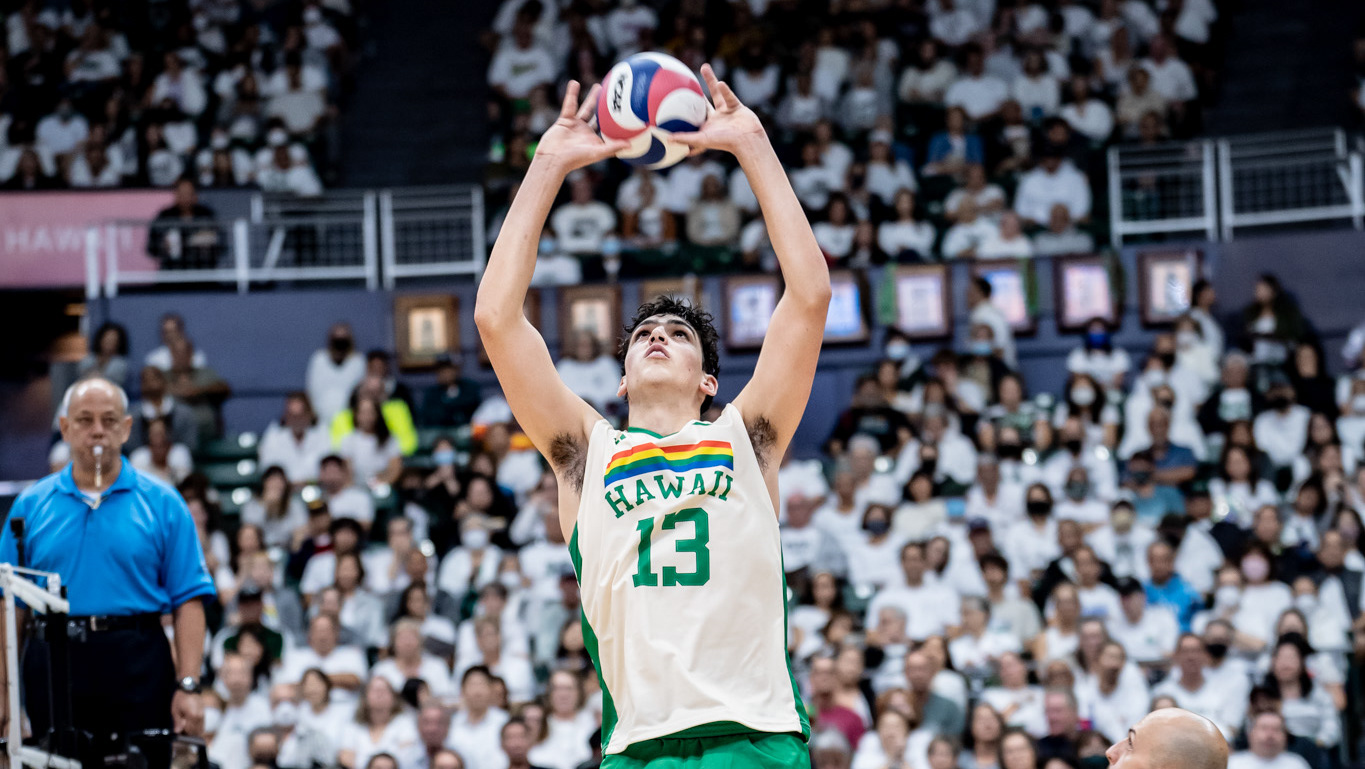Have you ever wondered how student-athletes manage their busy schedules? We all know that feeling of stress when life just starts to pile up. School work, social life, jobs in addition to their responsibility to sports – how do they do it all?
Jaheim Wilson-Jones, a sophomore on the University of Hawai’i football team, studies family science. He has maintained a 3.2 GPA while also balancing a busy athletic schedule. The football season is currently underway, which means the team holds practices every weekday to prepare for their weekly games on Saturdays. Practices typically last two and a half hours.
“Monday and Thursday we have practice at night, so at 6 p.m.,” Wilson-Jones said. “And Tuesday, Wednesday, and Friday, we have practice at 6 a.m.”
This semester, Wilson-Jones is taking four classes with three being in-person. The football team often travels to the mainland for away games, causing the team to miss classes. Six of the 13 scheduled games have required traveling off-island so far.
“It’s hard cause like, we have to come back and have to figure out what we missed,” Wilson-Jones said. “And if teachers don’t really communicate it’s like, ah now I have to figure it out all on my own.”
Due to this, and games being on Saturdays, he tries to get all his homework done before Friday. To him, keeping the same routine no matter what happens throughout the day is the best way to stay on top of football and school. He also recommends taking advantage of tutors and study halls as they have greatly helped him on his academic journey.
Hallee Mohr, a senior thrower for the UH track and field team studying kinesiology and rehab science, also has a packed daily schedule. Mohr has a cumulative GPA of 3.46 and was one of 65 UH athletes to be awarded the Big West All-Academic Award. Mohr is currently taking five classes for her major and is completing a 160-hour required internship at Mother’s Milk, a comprehensive breastfeeding resource center that provides resources such as professional lactation counseling and education.
“It’s 12 hours a week, maybe more, a minimum of 12 hours,” Mohr said. “But it will get more challenging once October 15th hits.”
As of right now, their training period is eight hours a week, with weightlifting four days a week. But October 15 marks the start of the track and field team’s more intensive training. Once that date arrives the team will begin 20-hour training weeks. Mohr, who does shot put and weight throw, will be throwing six days a week for around two hours along with the added weight training.
To stay on top of her studies for away events with such a loaded schedule, Mohr does her best to complete as many assignments as possible before getting on the plane. Her best method is to download anything she can do without Wi-Fi for the plane ride; however, she prefers to complete all her assignments before hitting the road so she can focus on her competition and not stress over assignments.
“At the beginning of the semester, I create a notes document for each of my classes and take all assignments and due dates from the syllabus and break them up by each week,” Mohr said. “I try to get them all done by Friday, then if I have extra time on the weekend I can try to get started on next week’s stuff.”
Guilherme Voss, a senior on the UH men’s volleyball team studying mechanical engineering, was also awarded the Big West All-Academic Award last season. With a GPA of 3.07, Voss has managed to maintain an organized and effective schedule. During the volleyball season, the team also has 20-hour practice weeks.
“We start practicing every day, for two to three hours a day along with the three [weightlifting] lifts and some trips on and off depending on if we play away games or not,” Voss said. “So it starts taking up a lot more of the time we have.”
Due to the team’s repeated success, they often travel to the mainland for games, especially during the postseason. To stay on top of their schoolwork during these trips, the team partakes in study hall hours. However, Voss prefers to complete his assignments prior to leaving the island. Especially since practice times and matches tend to overlap with classes, causing him to miss scheduled Zooms. Luckily, his professors are typically very understanding.
“I’ve been very lucky that the professors know the team really well and a lot of them have shown me a lot of respect,” Voss said. “And they’ve just been very supportive of how I am able to deal with those difficulties.”
A tip he has for students struggling with time management and course load is to get to know your class’ TA. He knows they are people who have studied and done well in that course, so they sometimes have a better perspective on how to learn things, even in comparison to the professor.
Dave Reardon, a sportswriter for the Honolulu Star-Advertiser, teaches sports journalism courses at UH. From a professor's perspective, he has a lot of respect for the student-athletes that take his courses.
“For the most part, nine out of ten of them are super organized and efficient,” Reardon said.
He says the athletes are typically very good at making up missed assignments or turning them in early before the due date. They have a proactive attitude that he greatly appreciates, and they tend to stay ahead.
“In order to do everything they need to do, they have to manage their time well. So, they’re more organized than I am,” Reardon said.
While being a student-athlete is very time-consuming, athletes tend to stay on top of their schedules despite everything going on in their lives. Having a good support system as well as strong methods to maintain organization makes all the difference.




